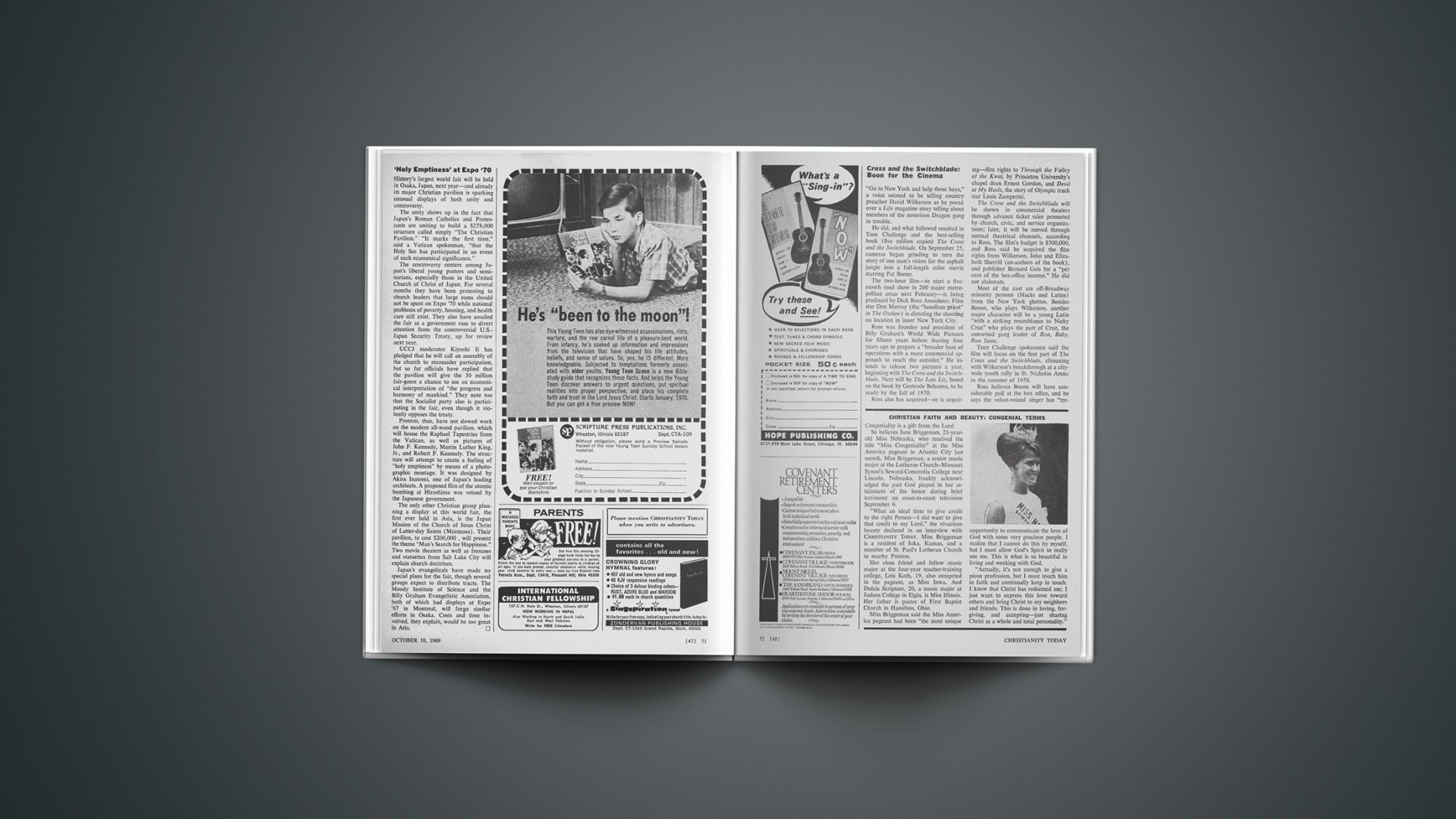The Black Manifesto, according to a black Baptist minister, is “the same old Red manifesto painted black and an echo of the Communist demands of Karl Marx.” The Rev. Joseph H. Jackson, president of the National Baptist Convention, U. S. A., Inc., said the convention wouldn’t “spend a dime” for “reparations.”
At the black denomination’s eighty-ninth annual assembly, Jackson declared his opposition to the National Council of Churches’ call for $500,000 to go to the Interreligious Foundation for Community Organization and the National Committee of Black Churchmen (see page 44). The National Baptist Convention, third-largest Protestant denomination, is an NCC member.
During the mid-September meetings in Kansas City, Missouri, Jackson was elected to his eighteenth term as president of the denomination. Although the 14,000 delegates chose him by acclamation, his election was opposed by leaders of a group of Concerned Clergy.
The Rev. Timothy P. Mitchell of New York and the Rev. L. K. Curry of Chicago said some black Baptists were concerned that the convention failed to grapple with “the burning issues affecting race or nation.” The 1,000-member group offered a resolution asking foreign-mission assistance to “their starving black brothers in Biafra” and home-mission aid for domestic needs. “All we want,” said Mitchell, “is to make our church relevant to the social concerns of six million members.”
The representatives of those members supported their president by passing all the resolutions he proposed. In addition to their criticism of the Black Manifesto, delegates disapproved of black militancy as leading to a “disastrously” divided country. “For militants to condemn every white Christian as a racist,” said Jackson, “is not only untrue, but diabolic.”
The delegates also declared their commitment to racial integration. Said their president: “The civil-rights movement … must cease to be a campaign of color, that is, of Negro Americans against white Americans.… The goals should be not Negro rights alone but the rights of all Americans. The emphasis must be as much on civil responsibility as on civil rights.”
Convention delegates also recommended clemency for Muhammad Ali (Cassius Clay), who was convicted of draft evasion. Such clemency, said Jackson, would help reduce tensions and hatred in the nation.










